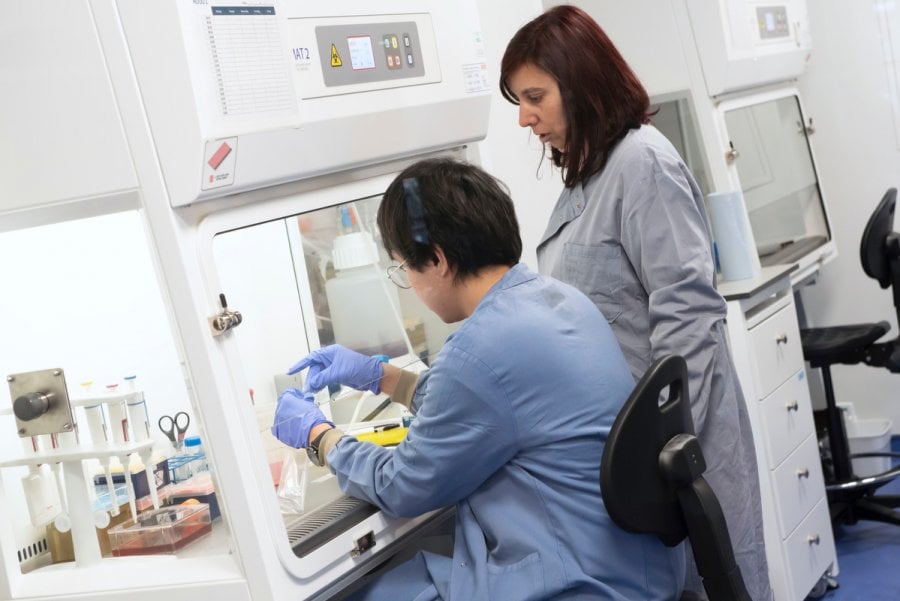LSHTM responds to UK Research and Innovation funding cuts
17 March 2021 London School of Hygiene & Tropical Medicine London School of Hygiene & Tropical Medicine https://lshtm.ac.uk/themes/custom/lshtm/images/lshtm-logo-black.png
Scientists working at the LSHTM malaria lab. Credit: LSHTM
Following the decision of the UK government to reduce the funds available for Official Development Assistance (ODA), UK Research and Innovation (UKRI) has recently announced it has a £120m gap between funding allocations and commitments. This will affect grants funded by UKRI ODA programmes.
Responding to the news, Professor Anne Mills, LSHTM's Deputy Director & Provost, said:
"LSHTM is dismayed by this decision, which threatens to negate years of investment in building the knowledge base for international development. The UK has a proud history of supporting centres of excellence in the UK and in low- and middle-income countries to conduct vital global health research. This research has led to major health gains across the world. It is critical for safeguarding our national security, as shown currently by the global COVID-19 pandemic and the central role of scientists and scientific collaborations in combatting it. And it is also crucial to addressing the challenges that will arise in the future, including the health consequences of climate change.
"Cutting support to the Global Challenges Research Fund will disrupt vital global health research. It will not just damage the UK’s research base, but also the capacity of research partners developed over many years of working together. Given the partnerships embedded in awards, it is likely that at least 50% of the consequences of this decision will be borne by low- and middle-income country researchers and institutions, with dire consequences for the livelihoods of their researchers and field staff.
"Working closely with partners around the globe, LSHTM is a world-leader in research that benefits millions of people. Much already-funded research is threatened by this decision, including ongoing clinical trials. For example, we understand that funding is currently on hold for the fifth year of a combination malaria vaccine and seasonal malaria chemoprevention trial in sub-Saharan Africa. There is a moral and ethical responsibility to complete ongoing research and deliver the promised findings to study participants.
"We join the calls for this decision to be reversed, and for UKRI to ensure any impact on current research projects and both UK and overseas researchers is minimised as much as possible.
"LSHTM is committed to supporting staff who are affected by this decision."
If you enjoyed this article and would like to build a career in global health, we offer a range of MSc programmes covering health and data, infectious and tropical diseases, population health, and public health and policy.
Available on campus or online, including flexible study that works around your work and home life, be part of a global community at the UK's no.1 public health university.